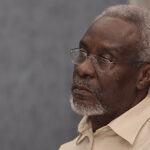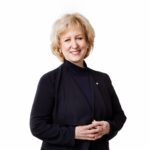“A Shared Society’ is a socially cohesive society. It is stable, safe. It is where all those living there feel at home. It respects everyone’s dignity and human rights while providing every individual with equal opportunity. It is tolerant. It respects diversity. A shared society is constructed and nurtured through strong political leadership.”
Shared Societies is an approach to social inclusion developed and adopted by the Club de Madrid. It is defined as a society based on equity, where each and every person feels at home, feels that they belong, that they can play a full part in that society and, at the same time, fulfil themselves. It is an ideal to which few people would object, but which is often subordinated to economic growth, creating a competitive market and protecting existing interests.
The “Shared Societies Project”, a key initiative of the Club de Madrid since 2007, provides leaders with greater understanding of the benefits of social cohesion; practical ideas and approaches on how to achieve a shared society; and encouragement and support as they advance towards that goal. The project is designed in the belief that societies are most likely to be peaceful, democratic and prosperous when leaders and citizens recognize the value of diversity and actively build a shared society. The recently published Economic Rationale for Shared Societies highlights and disseminates the solid evidence-based arguments that support the relationship between social cohesion and economic growth and well-being. The arguments are formulated and presented in such a way that they can be easily internalized and acted upon by leaders.
The Club de Madrid believes that general well being is at least partly dependent on building shared societies and has a positive impact on economic performance. The Economic Rationale for Shared Societies has been presented to different institutions in the following events organized by the Club de Madrid and other institutions:
- “A Shared Societies Approach to Economic and Social Policy”, United Nations Department of Economic and Social Affairs. April 12th, New York City. With the participation of: Mr. Jomo Kwame Sundaram, Assistant Secretary-General, Department of Economic and Social Affairs, United Nations and Carlos Westendorp, Secretary-General, Club de Madrid, Former Spanish Minister of Foreign Affairs and Former High Representative for Bosnia and Herzegovina. This session provided an opportunity to learn more about the contribution of a Shared Societies Approach can make to the key concern of UNDESA – social integration. After initial presentations by the representatives of the Club de Madrid there was time for discussion in which it was possible to consider the relevance of these ideas, how they can be applied to local and national situations and their implications for global policy frameworks.
- Gallup roundtable: What Iraqis, Nigerians and Americans have in common: The Economics for Shared Societies. April 14th, Washington, D.C. With the participation of: Jim Clifton, CEO Gallup; Carlos Westendorp, Secretary General of the Club de Madrid; Magali Rheault, Gallup Senior Consultant and Club de Madrid Shared Society Expert Member; Sir John Kaputin, Former Secretary General of the African, Caribbean, and Pacific Group of States, and Former Foreign Minister of Papua New Guinea; Beatriz Merino, National Ombudsman of Peru; Kinga Göncz, Member of the European Parliament (S&D, Hungary) and Vice-Chair of the Civil Liberties, Justice, and Home Affairs Committee; and H. Muhammad Jusuf Kalla, Former Vice President of Indonesia.
- “Shared Societies for a Better World,” Friedrich Ebert Stiftung and Center of Concern. April 16th, Washington, D.C.. Members of the Club de Madrid, Rt. Hon Kim Campbell, Prime Minister of Canada (1993) and P.J. Patterson, Prime Minister of Jamaica (1992-1997) will be joined by Samir Radwan, Minister of Finance, Egypt to discuss the economic benefits of shared societies from their political experience.
- “Democratic Reform of the International Financial and Monetary System: The objective of equitable development and shared societies” Friedrich Ebert Stiftung and Center of Concern April 16th, Washington, D.C. Members of the Club de Madrid, Rt. Hon Kim Campbell, Prime Minister of Canada (1993) and P.J. Patterson, Prime Minister of Jamaica (1992-1997) among other panellists. The Closed Workshop took place at the IMF headquarters and dealt mainly with the connection of the Shared Societies Perspective to their existing areas of interest in reform of the International Monetary System.
- “The Economics of Shared Societies, National and International Perspectives”, The World Bank April 19th, Washington, D.C. With the participation of Rt. Hon Kim Campbell, Ariel Fiszbein, Chief Economist of the Human Development Network, World Bank and Dr. Clem McCartney. The meeting with the World Bank was a lunch time open meeting for staff and motivated a reasonable level of interest. The meeting was very useful for the World Bank staff in order to meet some of the challenges which they face regarding social cohesion.
- “A Conversation with the Club de Madrid‘s Economic Rationale for Shared Societies Project” Roundtable at The Brookings Institution, April 20, Washington D.C. With the participation of Edouard Al-Dahdah, World Bank; Souad Ba’alawy, Independent; Kim Campbell, Club de Madrid; Laurence Chandy, Brookings; Uri Dadush, Carnegie Endowment for International Peace; Antonio de Lecea, Delegation of the European Union; Kemal Dervis, Brookings; Carol Graham, Brookings; Steen L.Jorgensen, World Bank; Daniel Kauffmann, Brookings; Homi Khadras, Brookings; Dr. Clem McCartney, Club de Madrid; Ted Piccone, Brookings. The meeting was a real interaction between those at the table and had a very positive and at the same time critical tone. The conversation, moderated by Kemel Derviş, was caught up with the current discourse in the United States of America over the budget deficit and how US thinking can be reconciled with the ideas of shared societies.

